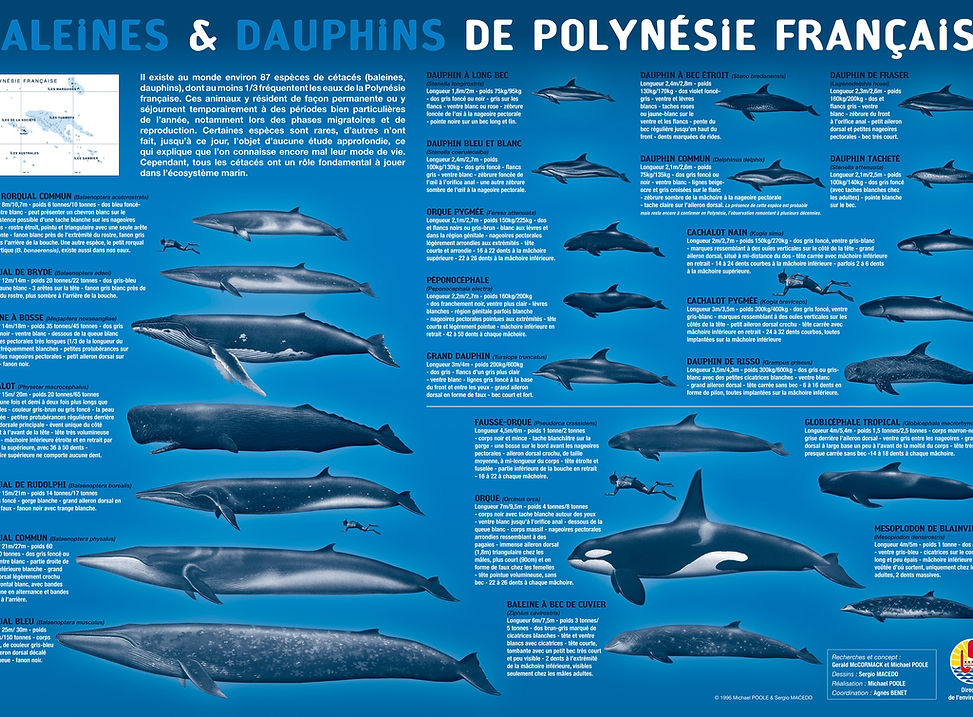top of page

CETACEANS
CETACEANS AROUND THE WORLD
Among cetaceans, we can find whales, dolphins and porpoises. They are all marine mammals.
Why are they considered mammals?

© Mandurah Cruises
1
They have hair or hair residue.

2
3
They are viviparous: they bring their babies to term.
They are homeotherms: warm-blooded animals that are able to regulate their internal temperature.
3

© Mike Korostelev
4
They breastfeed their calves.

5
They have aerial breathing and breathe air through their lungs.
Cetaceans are divided into 2 different sub-orders:
MYSTICETI
Baleen whales
4 families
11 species


Double blowhole


Baleen
Examples: gray whale, fin whale, humpback whale, southern right whale, pygmy whale, etc.
ODONTCENTI
Toothed whales
10 families
77 species


Single blowhole


Teeth
Examples: bottlenose dolphin, bottlenose dolphin, killer whale, sperm whale, beaked whale, etc.
Cetaceans in French Polynesia
French Polynesia represents a total maritime area (internal waters, territorial sea and exclusive economic zone (EEZ)) of 5.5 million km² (equivalent to the size of Europe).

Since 2002, French Polynesia has classified all its waters as a sanctuary for marine mammals, turtles, rays and sharks.
Of the world's 88 cetacean species, at least 20 are present in Polynesian waters for all or part of the year.

The Marquesas have the most species of cetacean, with 16 species, compared with 10 in the Australs, for example.
Dolphins are regularly observed in all the archipelagos, in the passes and certain bays.
Killer whales have been reported in French Polynesia, particularly in the Marquesas. But in recent years, they also seem to be present around the island of Bora Bora. During the whale season (July to October), it's not impossible to come across them off the islands of Tahiti and Moorea.
Short-finned pilot whales are a common sight in all the archipelagos of French Polynesia, but most often off the coast.
bottom of page


.jpg)
